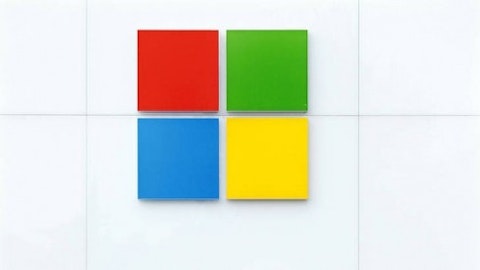The news is out: Microsoft Corporation (NASDAQ:MSFT)‘s expected reorganization is moving ahead. CEO Steve Ballmer’s recent email to employees details much of the changes, but here’s one particular piece that caught my attention:
“Improving our performance has three big dimensions: focusing the whole company on a single strategy, improving our capability in all disciplines and engineering/technology areas, and working together with more collaboration and agility around our common goals.”
As a company that has been notoriously siloed in the past, this is a major change. Will investors be rewarded by these changes in the long run, or will it just be more of the same?
Defensive reaction?
There’s little doubt that Microsoft Corporation (NASDAQ:MSFT) isn’t concerned about the changing face of personal computing. Google Inc (NASDAQ:GOOG) and Apple Inc. (NASDAQ:AAPL) are clearly the face of mobile computing today, but there is still has explosive growth ahead. Even Microsoft Corporation (NASDAQ:MSFT)‘s near monopoly on the PC market is weakening, both through Apple Inc. (NASDAQ:AAPL)‘s growth in PC’s and the overall decline of the segment in recent quarters. The plain and simple fact is consumers today see a world that doesn’t require them to own a computer that says “Microsoft” on it somewhere. And for many consumers, that’s just fine.
And Microsoft has to change that perception, and fast, or the slowdown in the PC business will eventually have serious material impact.
It’s time to go on offense
So in a way, this is surely about defending the fort, but the name of the game is really about breaking down the barriers that lead to underwhelming products like Windows 8. What should have been a very slick, integrated product that truly united the “ecosystem,” instead doesn’t even really work across multiple computing platforms.
But I digress.
Once upon a time, the silos worked. It allowed Microsoft Corporation (NASDAQ:MSFT) (and its monopoly in many parts of computing) to focus on business segments in a targeted way, and independent segments could do their own thing. That clearly doesn’t work as well when there’s competition, and you need all your toys to play in the same sandbox. Simply put, Microsoft Corporation (NASDAQ:MSFT)needs to be more like Apple Inc. (NASDAQ:AAPL) in this regard, and I think it’s a step in the right direction.
It’s about the whole package, not just software
Apple Inc. (NASDAQ:AAPL) and Google Inc (NASDAQ:GOOG) have both shown this to be the case. Apple’s m.o. has always been to control the entire product experience, including design of the hardware, software and interface. And in mobile, the App Store has extended this to 3rd party software to a large extent. And it’s this relentless focus on product experience that’s rewarded Apple Inc. (NASDAQ:AAPL) with the highest customer loyalty in the smartphone and tablet business, by far. Heck, the company even has the best-selling laptop and desktop computers, partially due to he heavy segmentation of the Windows PC business.
Google Inc (NASDAQ:GOOG) has taken a very different approach, essentially giving its Android mobile operating system away for free, and counting on its powerful search and other informational services, like Maps, to drive users to its services, and keep advertising dollars flooding in to pay for its cool new ideas. So while its model of giving much of its customer-facing product away for free and counting on advertising dollars to pay the bills, is essentially the opposite of Apple Inc. (NASDAQ:AAPL)‘s high-price, high-value model.
And essentially, since no one really pays Google for anything, its is able to be the good guy if someone isn’t please with a cheap Android phone. They just have to buy a nice one from, say, Samsung or Google subsidiary Motorola Mobility. Lastly, Google is able to monetize Apple mobile products just as easily as it does its own, so while the two tech giants do compete, Google still wins even if the consumer buys an iGadget.
But Microsoft doesn’t; not at all. And it’s partially because its priorities are upside down
And that’s what leads us to this major shift. The company, quite frankly, has to let employees act and think more like those at both Google and Apple, which are less about monetization of a product segment, and more about making something innovative and amazing that consumers will love and flock to. And for both of these companies, this plan has absolutely worked. Google gives much of its consumer-facing products and services away (generating revenues from ad sales,) and still carries nearly the same net income margin as Microsoft, while growing at a much faster rate. Even if you ignore the market price reaction over the past 6 months, Apple has generated nearly $40 billion in income in the past year. That’s more than half of the total revenue that Microsoft Corporation (NASDAQ:MSFT) has generated, $76 billion, while Microsoft has focused on monetization. Which leads me to another quote from Ballmer’s email (bold mine for emphasis:)
“We are rallying behind a single strategy as one company — not a collection of divisional strategies. Although we will deliver multiple devices and services to execute and monetize the strategy, the single core strategy will drive us to set shared goals for everything we do. We will see our product line holistically, not as a set of islands.”
And this is what still concerns me about Microsoft. It may seem like some esoteric, fuzzy concept for a company to not think about profitability. And I’m sure that Apple Inc. (NASDAQ:AAPL) and Google both consider profitability before launching any product to the consumer market. However, Microsoft Corporation (NASDAQ:MSFT) tends to look at a segment first, from the perspective of monetization, and then determine whether or not, and how deep, to jump in. And it failed miserably at this with mobile a few years ago, not making a real attempt to go after this market. And this lack of foresight brings us to where we are today.
Foolish bottom line
And it’s this aspect; the inverse of Google’s and Apple Inc. (NASDAQ:AAPL)’s mentality when looking at innovative, disruptive ideas, that no level of reorganization can change. And until Microsoft demonstrates that it’s really driven by innovation and not monetization, Apple and Google will continue to be better long-term investments. And that’s from someone who owns all three.
The article Does Microsoft Think It’s Apple? originally appeared on Fool.com and is written by Jason Hall.
Jason Hall owns shares of Apple, Microsoft, and Google. The Motley Fool recommends Apple and Google. The Motley Fool owns shares of Apple, Google, and Microsoft. Jason is a member of The Motley Fool Blog Network — entries represent the personal opinion of the blogger and are not formally edited.
Copyright © 1995 – 2013 The Motley Fool, LLC. All rights reserved. The Motley Fool has a disclosure policy.






